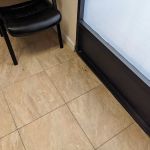Preventing cavities is an essential part of maintaining good oral health, especially as adults. While most people are aware of the need to brush their teeth regularly, there are many other factors that contribute to cavity prevention. The best ways to prevent cavities in adults go beyond the basics of brushing and flossing. Proper diet, effective dental hygiene habits, regular dental check-ups, and other strategies all play a role in keeping your teeth healthy and cavity-free. In this article, we’ll explore the most effective methods and tips for cavity prevention in adults, and how you can take proactive steps to avoid tooth decay.
Cavities, also known as dental caries, are caused by the build-up of plaque and bacteria on the teeth, which lead to the demineralization of the enamel. Over time, this leads to holes, or cavities, in the teeth. For adults, cavities can develop in various areas of the teeth due to a combination of dietary choices, poor oral hygiene, and other lifestyle factors. Adults may face additional challenges like receding gums, weakened enamel, and dry mouth, all of which can increase the risk of cavities. Understanding the best ways to prevent cavities in adults is crucial in maintaining overall dental health and avoiding costly dental treatments later in life.
The good news is that there are several proactive steps you can take to protect your teeth and prevent cavities. From adopting better brushing techniques to choosing cavity-fighting foods and beverages, there are multiple ways to combat tooth decay. Let’s dive into the most effective methods for cavity prevention in adults, offering detailed tips and practical advice that you can incorporate into your daily routine.
1. The Importance of Brushing and Flossing
The foundation of cavity prevention starts with good oral hygiene practices, particularly brushing and flossing. Brushing your teeth at least twice a day with fluoride toothpaste is one of the most important things you can do to prevent cavities. Fluoride helps to strengthen tooth enamel, making it more resistant to the acids produced by bacteria in your mouth.
Flossing is equally important. It helps remove food particles and plaque from between the teeth, areas that a toothbrush might miss. Plaque buildup between teeth can lead to cavities if not cleaned regularly. A common mistake adults make is neglecting flossing, thinking that brushing alone is sufficient. However, it’s essential to floss at least once a day to ensure that all surfaces of your teeth are clean and free from plaque.
Additionally, make sure you're using the proper technique when brushing and flossing. Brushing too hard can damage your gums and enamel, while brushing for too short a time can leave bacteria behind. Spend at least two minutes brushing your teeth and be gentle when flossing to avoid causing harm to your gums.
2. Eating a Healthy Diet to Prevent Cavities
Your diet plays a significant role in preventing cavities. Foods high in sugar and carbohydrates are the primary contributors to tooth decay. Bacteria in your mouth feed on sugars, producing acids that wear down your enamel, leading to cavities over time. To prevent cavities, it’s important to limit sugary foods and drinks, such as candy, sodas, and sugary snacks.
Instead, focus on a balanced diet rich in nutrients that promote oral health. Foods high in calcium, such as dairy products, leafy greens, and almonds, help to strengthen your teeth. Vitamin D, found in fortified foods and sunlight, is also crucial for maintaining healthy teeth and bones. Additionally, foods high in fiber, like fruits and vegetables, stimulate saliva production, which helps neutralize acids in the mouth and wash away food particles.
Drinking water throughout the day is another great way to protect your teeth. Water helps rinse away food particles and bacteria, and staying hydrated supports healthy saliva production. Consider chewing sugar-free gum after meals to stimulate saliva flow and further reduce the risk of cavities.
3. The Importance of Regular Dental Checkups
Even if you are diligent about brushing, flossing, and maintaining a healthy diet, regular dental checkups are essential for preventing cavities. Dentists can identify early signs of tooth decay before they become significant problems. They also provide professional cleanings to remove tartar buildup, which can’t be removed by brushing and flossing alone.
During your dental visits, your dentist will check for cavities, gum disease, and other oral health issues. They may also offer additional treatments such as fluoride treatments, which can help strengthen your enamel and prevent decay. By visiting your dentist every six months, you ensure that any potential issues are caught early, reducing the risk of developing more severe dental problems later on.
Additionally, if you have any specific concerns about your oral health, such as tooth sensitivity or frequent cavities, discussing them with your dentist will help you find personalized solutions to address these issues.
4. Using Sealants to Protect Your Teeth
Dental sealants are thin, protective coatings that are applied to the chewing surfaces of the back teeth (molars), where cavities are most likely to form. These sealants act as a barrier, preventing food particles and bacteria from accumulating in the tiny grooves of your molars, which are difficult to clean thoroughly with a toothbrush.
Sealants are typically applied to children’s teeth, but adults can benefit from them as well. If you are at high risk for cavities or have deep grooves in your teeth, sealants can provide an extra layer of protection. The process of applying sealants is quick, non-invasive, and can help prevent cavities in hard-to-reach areas of your mouth.
Ask your dentist if sealants are a good option for you. While they are not a substitute for regular brushing and flossing, they can significantly reduce the likelihood of cavities in your molars, offering added protection to your teeth.
5. Avoid Smoking and Limit Acidic Foods
Smoking and chewing tobacco are major contributors to poor oral health, including an increased risk of cavities. Tobacco products can dry out your mouth, reducing saliva production. Saliva plays a critical role in neutralizing acids and helping your body repair tooth enamel. Additionally, smoking can lead to gum disease, which makes it easier for cavities to form.
Similarly, acidic foods and beverages, such as citrus fruits, coffee, and soda, can erode enamel over time. While you don’t need to completely eliminate these items from your diet, it’s important to consume them in moderation. If you do consume acidic foods, consider rinsing your mouth with water afterward to help reduce the effects of the acid on your enamel.
Taking steps to avoid tobacco use and limiting acidic foods can go a long way in maintaining healthy teeth and preventing cavities.
6. Using Mouthwash to Reduce Cavity Risk
Using a fluoride mouthwash is an effective way to reduce your risk of cavities. Mouthwash helps to reach areas that are difficult to clean with a toothbrush, such as the spaces between your teeth and along the gumline. It also helps to kill harmful bacteria in the mouth that can lead to plaque buildup and cavities.
Choose a mouthwash that contains fluoride and is designed for cavity protection. Using mouthwash as part of your daily routine can provide an additional layer of protection for your teeth, helping to keep cavities at bay.
Keep in mind that mouthwash should not replace brushing and flossing, but it can be a valuable addition to your oral care regimen. Always follow the instructions on the mouthwash bottle, and use it as directed for the best results.
Conclusion: The Best Ways to Prevent Cavities in Adults
In conclusion, the best ways to prevent cavities in adults involve a combination of good oral hygiene habits, a healthy diet, and regular visits to the dentist. By brushing and flossing regularly, eating a balanced diet, using dental sealants, and avoiding smoking, you can significantly reduce your risk of developing cavities. Additionally, consider using fluoride mouthwash and limiting acidic foods to further protect your teeth.
Remember, preventing cavities isn’t just about brushing your teeth—it's about adopting a proactive approach to your oral health. If you’re looking for more tips on cavity prevention or need assistance with oral care products, visit Dentistry Toothtruth for expert advice and resources to help you maintain healthy teeth for life.
SEO Title: Best Ways to Prevent Cavities in AdultsSEO Keywords: prevent cavities in adults, cavity prevention, oral hygiene, healthy diet for teeth, dental sealants, fluoride mouthwashSEO Description: Discover the best ways to prevent cavities in adults. Learn how proper brushing, flossing, diet, and other strategies can help you keep your teeth healthy and cavity-free. Visit Dentistry Toothtruth for expert tips and advice.







 Leonard L Patella, DDS0.0 (0 review)
Leonard L Patella, DDS0.0 (0 review) Dental Group NY4.0 (266 review)
Dental Group NY4.0 (266 review) West Covina FAMILY DENTISTRY4.0 (45 review)
West Covina FAMILY DENTISTRY4.0 (45 review) Comfort Dental Group3.0 (29 review)
Comfort Dental Group3.0 (29 review) Aramingo Family Dentistry3.0 (46 review)
Aramingo Family Dentistry3.0 (46 review) Blaine Kidds Pediatric Dentistry4.0 (410 review)
Blaine Kidds Pediatric Dentistry4.0 (410 review) The Importance of Oral Health Education During Pregnancy for a Healthy Pregnancy
The Importance of Oral Health Education During Pregnancy for a Healthy Pregnancy Best Tips for Brushing Your Teeth Properly for Healthy Gums: Essential Techniques for Oral Health
Best Tips for Brushing Your Teeth Properly for Healthy Gums: Essential Techniques for Oral Health Why Skipping Dental Checkups Can Lead to Bigger Oral Health Problems
Why Skipping Dental Checkups Can Lead to Bigger Oral Health Problems Advantages of Porcelain Dental Restorations
Advantages of Porcelain Dental Restorations How Can Diabetes Cause Tooth and Gum Problems? Preventing and Managing Oral Health Issues
How Can Diabetes Cause Tooth and Gum Problems? Preventing and Managing Oral Health Issues Healthy Habits for Promoting Good Oral Health and Hygiene: Tips for a Healthy Smile
Healthy Habits for Promoting Good Oral Health and Hygiene: Tips for a Healthy Smile